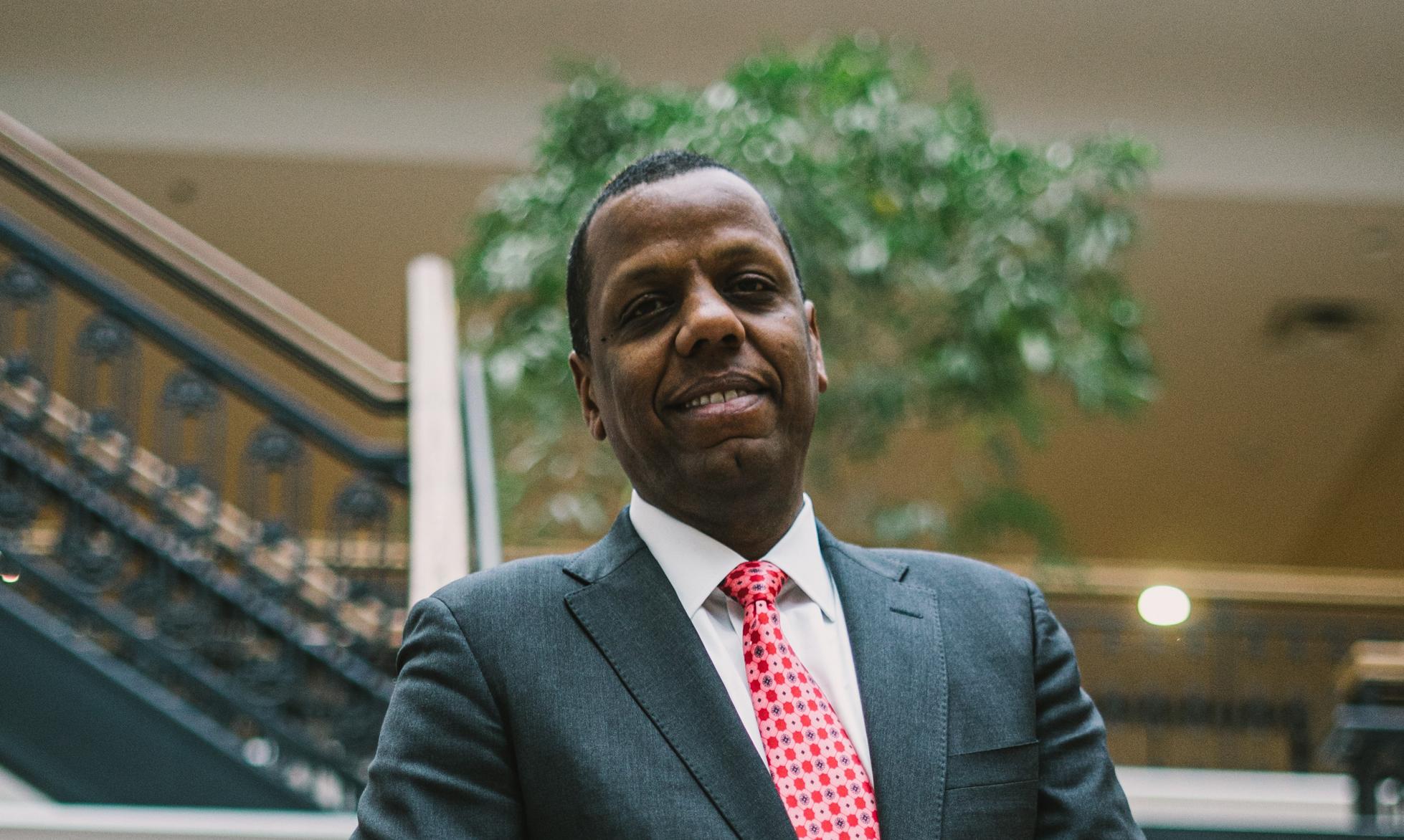It’s no secret that Covid-19 forced many of us to reevaluate our finances, whether from a position of comfort or necessity. The 11 personal finance startups honored on Forbes’ 2021 Fintech 50 list sailed above the competition while helping their customers navigate strong crosscurrents—nearly one in six Americans faced unemployment in April 2020, while the personal savings rate skyrocketed to 33.7% that same month (a 350% year-over-year spike) as the first round of federal stimulus checks started flowing and those who held onto their jobs stopped spending on restaurants, travel and all those other suddenly verboten activities.
Folks had to park their paychecks—and their stimulus money—somewhere. Five digital quasi-banks made our list this year; their total number of accounts escalated as consumers became more comfortable with the idea of banking mostly online amid a boom year for ecommerce (and social distancing). Chime, now valued at $14.5 billion, remains the largest in this space. It’s joined by Dave, Current and newcomers Varo Bank and MoCaFi (a portmanteau of “Mobility Capital Finance”), which specifically aims to serve Black and Hispanic communities that have less access to traditional brick-and-mortar banks.

Before founding MoCaFi in 2015, CEO Wole Coaxum held positions at Citi, JPMorgan and other traditional banks.
Courtesy of MoCaFi
In an effort to differentiate themselves, some fintechs are taking a generational approach. With a $2.3 billion valuation, Greenlight offers educational money management tools—and even the ability to buy fractional shares—to kids and teens, for a monthly fee paid by their parents. Truebill’s free app helps Millennials keep track of their spending and it can even automatically cancel underutilized subscriptions (looking at you, Disney+).
Another cohort hopes to help low-income households typically left behind by the traditional banking industry. In addition to MoCaFi, there’s Esusu, a startup that helps people build credit by reporting rent payments to credit bureaus. Propel’s mobile app helps food stamp recipients track their balances, and it partnered with a nonprofit last year to deliver more than $140 million in $1,000 cash payments directly to users hit hard by the pandemic. Tala, which offers micro-loans to customers with little or no formal borrowing history in countries including Mexico and India, is once again extending credit at pre-pandemic levels after a tough start to 2020.
Here are the 11 personal finance companies that made Forbes’ Fintech 50 list for 2021:
Chime
Headquarters: San Francisco
Digital bank offering no-fee checking accounts, a debit card and overdraft protection of up to $200. Last year it boosted sign-ups by offering customers early access to their federal stimulus checks and launching a new secured credit card (a starter card where the holder puts up money to cover his or her credit limit).
Funding: $1.5 billion from DST, Crosslink, Coatue and others
Latest valuation: $14.5 billion
Bona fides: Most valuable U.S. digital bank; exceeded $600 million in annualized revenue in 2020
Cofounders: CEO Chris Britt, 48, who did previous stints at Green Dot and Visa; CTO Ryan King, 44
Current
Headquarters: New York City
Launched in 2017 as a digital bank for teens, it rolled out adult accounts in 2019. Attracts adults earning an average of $45,000, many opening their first accounts, with features like early access to direct deposited paychecks, overdraft coverage of up to $100, budgeting tools and a rewards debit card. Majority of customers pay monthly for a premium account ($36 per year for teens, $4.99 per month for adults).
Funding: $403 million from Andreessen Horowitz, Tiger Global Management, QED and others
Latest valuation: $2.2 billion
Bona fides: Nearly three million members today, up from one million a year ago, with growth boosted by early access to stimulus and unemployment checks
Founder & CEO: Stuart Sopp, 44, a British veteran of macro trading at Morgan Stanley and other banks
Dave
Headquarters: Los Angeles
Aims to make banking approachable with its cartoon bear mascot, low monthly fee starting at $1 and services like checking accounts with no minimums or overdraft fees, automated budgeting, cash advances of up to $200 and credit score building through reporting of rent and utility payments to credit bureaus.
Funding: $176 million from Norwest Venture Partners, Capital One, Mark Cuban and others
Latest valuation: $1 billion
Bona fides: Has more than nine million customers, four million of them added in 2020
Cofounders: CEO Jason Wilk, 35; CTO Paras Chitrakar, 42; John Wolanin, 38
Esusu
Headquarters: New York City
Lets low-income consumers report rent payments to credit bureaus for free as a way to boost their credit scores. Large property managers pay for the service because tenants are more likely to pay on time if the payments are getting reported to bureaus.
Funding: $4 million from Acumen Fund, Concrete Rose Capital, Kleiner Perkins and others
Bona fides: 250,000 registered users and more than 50 property manager clients, including affordable housing provider Mercy Housing
Cofounders & Co-CEOs: Abbey Wemimo, 29, a Nigerian immigrant; Samir Goel, 27; each cofounded nonprofits before starting Esusu
Greenlight
Headquarters: Atlanta
Subscription-based app starting at $4.99 per month per family, offers automatic allowances, chore tracking, budgeting, charitable giving and debit cards for kids—all overseen by parents. In October, partnered with JPMorgan to offer a kids checking account and in January, launched its own investing platform allowing young users to buy fractional shares—so far 50,000 investments have been made, averaging $20 a trade.
Funding: $557 million from Andreessen Horowitz, TTV Capital, Canapi Ventures and others
Latest valuation: $2.3 billion
Bona fides: Saw 300% growth in revenue and customers in 2020, to about 3 million paying households
Cofounders: CEO Tim Sheehan, 51; president Johnson Cook, 41
Klarna
Headquarters: Stockholm, Sweden
Pioneered the buy-now, pay-later model in fintech. Lets people pay in installments for everything from Macy’s suits to Etsy knick-knacks. It has 17 million U.S. users and another 90 million customers spread across 16 other countries.
Funding: $2.2 billion from Sequoia Capital, Bestseller Group, Permira and others
Latest valuation: $31 billion as of March 2021, up from $11 billion just six months prior
Bona fides: Processed $53 billion in global transactions in 2020 as revenue grew 40% to $1.1 billion; works with 24 of the top 100 American retailers
Cofounder and CEO: Sebastian Siemiatkowski, 39, a Swedish entrepreneur who worked at an accounting firm before starting Klarna
MoCaFi
Headquarters: New York City
The mobile-first banking platform aims to address financial inequality by serving Black and Hispanic communities with less access to banks, helping them with credit building and personal finance tools. Takes a unique, although slow approach of partnering with local governments so its debit cards can be loaded with benefits such as discounted transit fares.
Funding: $19 million from Mastercard, Citi Impact Fund, Tom & Wende Hutton, Radicle Impact and others
Latest valuation: $37 million
Bona fides: Though it still only has 30,000 users, it has now struck deals with 10 community organizations and cities, including Los Angeles and Honolulu
Founder & CEO: Wole C. Coaxum, 51, a former senior vice president at JPMorgan Chase
Propel
Headquarters: New York City
Its Fresh EBT mobile app allows food stamp recipients to check their balances without having to call an 800-number, as well as to electronically clip store coupons, search job postings and connect to social services. In 2020, Propel partnered with nonprofit GiveDirectly to raise money and send more than $140 million in $1,000 cash payments directly to users hit hard by the pandemic.
Funding: $34 million from Andreessen Horowitz, Nyca Partners, Kleiner Perkins, Serena Williams, Kevin Durant and others
Latest valuation: $100 million
Bona fides: In 2020, doubled users to four million
Founder & CEO: Jimmy Chen, 33, who left a cushy job as a product manager at Facebook to start Propel
Tala
Headquarters: Santa Monica, Calif.
Makes loans of $10 to $500 to customers with little or no formal borrowing history in Mexico, the Philippines, Kenya and India, using their smart phone data to judge risk. When Covid hit, Tala pulled back sharply on lending to mitigate risk. After cost-cutting and layoffs, it’s now extending credit at pre-pandemic levels, or roughly $60 million a month. In mid-2020 it launched its first debit card for customers in Mexico. In May 2021, it partnered with Visa and crypto company Circle to let Tala customers send, receive and hold “stablecoin” cryptocurrency (it is pegged to the value of a dollar). The goal? To help users transfer money more cheaply than through traditional remittance providers like Western Union.
Funding: More than $200 million from GGV, IVP, Revolution Growth and others
Latest valuation: $800 million
Bona fides: Since 2014 launch, has made more than $2 billion in microloans to six million plus customers
Founder and CEO: Shivani Siroya, 39, who founded Tala after studying the impact of microcredit in sub-Saharan and West Africa for the U.N.
Truebill
Headquarters: Silver Spring, Md.
Its free app helps Millennials better manage their money by creating budgets, monitoring credit, cancelling subscriptions and negotiating bills (for a fee of 30% to 60% of users’ savings). It also helps users avoid overdraft fees with free pay advances. Users can choose their own monthly fee (typically between $3 and $12) for premium features, such as a cancellation concierge. Funding: $85 million from Accel, Bessemer Venture Partners, Eldridge Industries and others
Latest valuation: $500 million – $600 million
Bona fides: Has cancelled more than a million subscriptions, saving its two million members more than $100 million
Cofounders: Brothers CEO Haroon Mokhtarzada, 41, CRO Yahya Mokhtarzada, 37, CTO Idris Mokhtarzada, 34 and advisor Zeki Mokhtarzada, 42. The four founded website builder Webs.com before selling it to Vistaprint for $118 million in 2011.
Varo
Headquarters: San Francisco
Launched in 2015, Varo is a digital bank offering checking accounts, ATM access, cash advances up to $100 and automatic savings accounts with up to 3% APY. It will soon roll out Varo Believe, a secured credit card that must be paid in full each month. Average customer earns between $40,000 and $60,000 per year. In August, Varo became the first fintech to secure a national bank charter, which will allow it to eventually offer more products, including loans.
Funding: $482 million
Latest valuation: $1 billion
Bona fides: Has three million-plus accounts after 100% account growth in 2020
Cofounder & CEO: Colin Walsh, 52, a former Wells Fargo and American Express executive
Forbes


